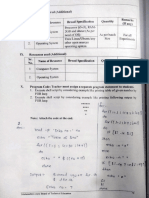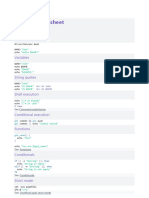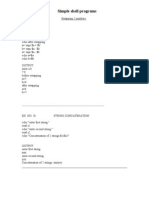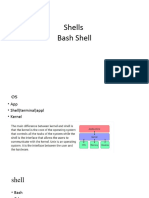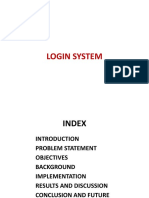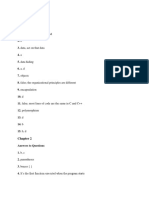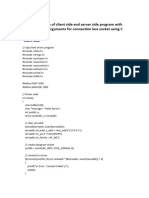0% found this document useful (0 votes)
40 views8 pagesUnix Exercise
This document provides examples of using Unix/Linux commands and shell scripting. It covers topics such as awk programming, crontab for scheduling jobs, writing shell scripts, shell script arguments, loops, conditions, functions and more.
Uploaded by
K.H. LeeCopyright
© © All Rights Reserved
We take content rights seriously. If you suspect this is your content, claim it here.
Available Formats
Download as PDF, TXT or read online on Scribd
0% found this document useful (0 votes)
40 views8 pagesUnix Exercise
This document provides examples of using Unix/Linux commands and shell scripting. It covers topics such as awk programming, crontab for scheduling jobs, writing shell scripts, shell script arguments, loops, conditions, functions and more.
Uploaded by
K.H. LeeCopyright
© © All Rights Reserved
We take content rights seriously. If you suspect this is your content, claim it here.
Available Formats
Download as PDF, TXT or read online on Scribd
/ 8




































